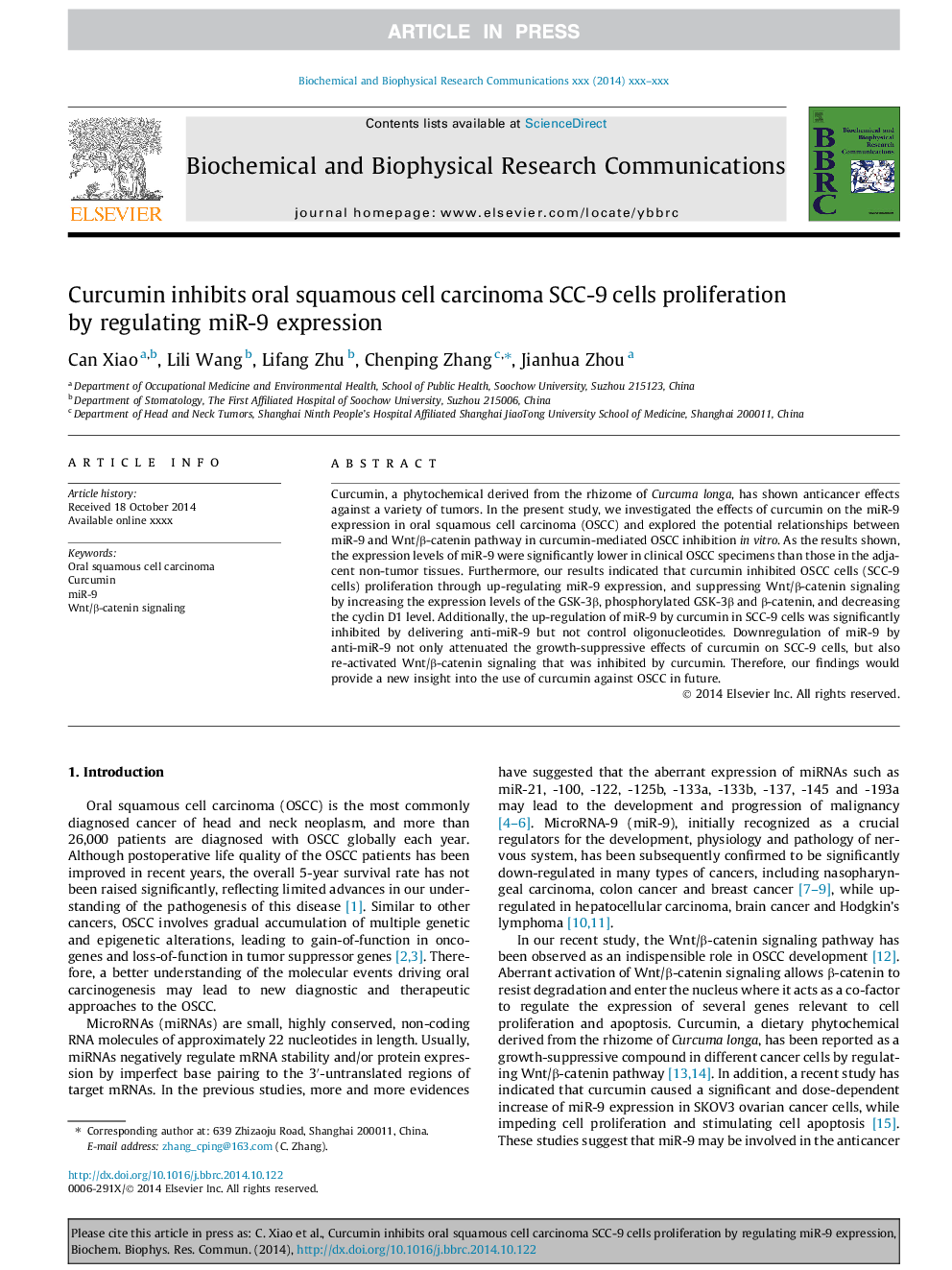| Article ID | Journal | Published Year | Pages | File Type |
|---|---|---|---|---|
| 10753235 | Biochemical and Biophysical Research Communications | 2014 | 5 Pages |
Abstract
Curcumin, a phytochemical derived from the rhizome of Curcuma longa, has shown anticancer effects against a variety of tumors. In the present study, we investigated the effects of curcumin on the miR-9 expression in oral squamous cell carcinoma (OSCC) and explored the potential relationships between miR-9 and Wnt/β-catenin pathway in curcumin-mediated OSCC inhibition in vitro. As the results shown, the expression levels of miR-9 were significantly lower in clinical OSCC specimens than those in the adjacent non-tumor tissues. Furthermore, our results indicated that curcumin inhibited OSCC cells (SCC-9 cells) proliferation through up-regulating miR-9 expression, and suppressing Wnt/β-catenin signaling by increasing the expression levels of the GSK-3β, phosphorylated GSK-3β and β-catenin, and decreasing the cyclin D1 level. Additionally, the up-regulation of miR-9 by curcumin in SCC-9 cells was significantly inhibited by delivering anti-miR-9 but not control oligonucleotides. Downregulation of miR-9 by anti-miR-9 not only attenuated the growth-suppressive effects of curcumin on SCC-9 cells, but also re-activated Wnt/β-catenin signaling that was inhibited by curcumin. Therefore, our findings would provide a new insight into the use of curcumin against OSCC in future.
Related Topics
Life Sciences
Biochemistry, Genetics and Molecular Biology
Biochemistry
Authors
Can Xiao, Lili Wang, Lifang Zhu, Chenping Zhang, Jianhua Zhou,
